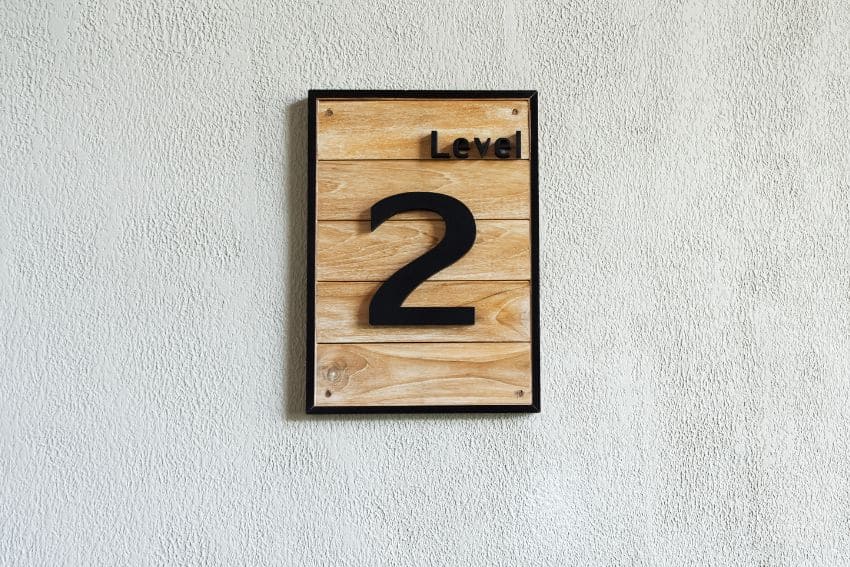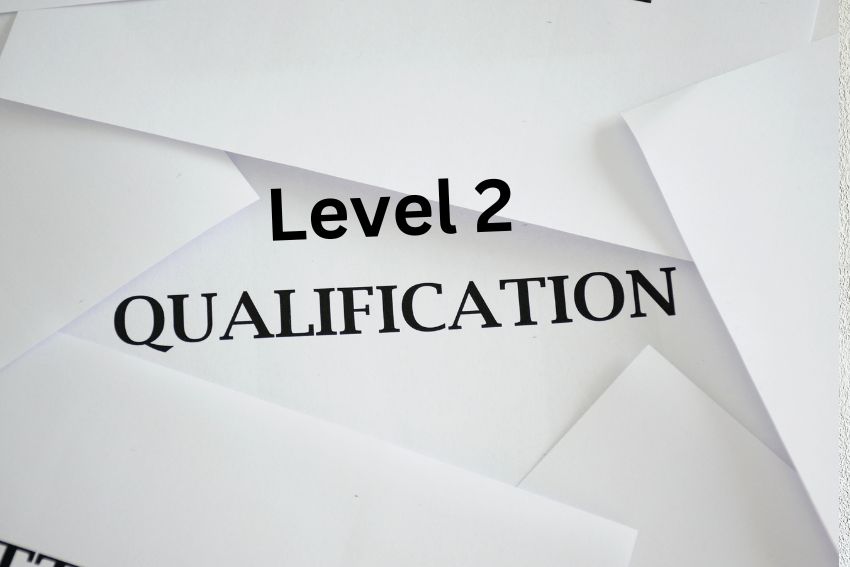The UK education system’s structure is into qualification levels, providing a clear progression pathway for learners. Level 2 qualification is a key milestone in educational path. It offers essential knowledge and skills for further education, vocational training, or entry-level jobs. We may say that it’s like a bridge between foundational and advanced learning.
So, if you want to know everything about level 2 qualification you are in the right place. keep reading! blog aims to guide you in understanding Level 2 qualifications, their benefits, and progression opportunities. We help you navigate this crucial stage with confidence. So let’s start.
What Is a Level 2 Qualification?
A Level 2 qualification represents an important step in the UK education system, offering intermediate knowledge and skills that prepare individuals for further education, vocational training, or employment.
Design of Level 2 qualifications develops practical and theoretical understanding. This qualification provides learners with the foundation they need to progress to higher levels of education.
For example, they are often a prerequisite for Level 3 courses such as A-levels or BTEC (Business and Technology Education Council) Nationals. They also pave the way for apprenticeships, offering hands-on experience and training in specific career fields. Additionally, they can open doors to entry-level jobs, equipping individuals with the skills employers value.
What is level 2 it equivalent to?
Level 2 qualifications are equivalent to GCSE grades 4–9 (A–C), making them a recognized standard for competency across various subjects and industries.
Level 2 serves as a critical gateway to achieving academic, personal, and professional goals. Whether you’re planning to pursue higher education or gain skills for the workplace. Level 2 qualifications provide the essential stepping stone to success.
Comparison of Level 2 to Other Levels
Educational Levels
| Education Levels | Description | Examples | Progression Opportunities |
| Level 1 | Foundation level providing basic knowledge and skills. | GCSE grades 1–3, Functional Skills Level 1 | Progress to Level 2 qualifications. |
| Level 2 | Intermediate level focusing on essential knowledge and skills needed for further education or work. | GCSE grades 4–9, Functional Skills Level 2, NVQ Level 2, BTEC Firsts. | Progress to Level 3 (A-Levels, BTEC Nationals, NVQ Level 3). |
| Level 3 | Advanced level providing in-depth knowledge and preparation for higher education or skilled careers. | A-Levels, BTEC Nationals, NVQ Level 3. | Entry into higher education (university) or skilled apprenticeships. |
| Level4 and Level 5 | Higher education levels focusing on specialist knowledge and skills. | HNCs, HNDs, Foundation Degrees. | Progress to university degrees or professional careers. |
| Level 6 | Bachelor's degree level offering comprehensive academic or professional knowledge. | Bachelor’s Degrees (BA, BSc). | Entry into professional careers or postgraduate studies. |
| Level 7 | Postgraduate level for advanced academic or professional expertise. | Master’s Degrees, Postgraduate Diplomas. | Progress to doctoral studies or specialised career roles. |
| Level 8 | Doctoral level providing expertise in research and innovation. | PhD, Professional Doctorates. | Advanced research positions or senior professional roles. |
Examples of Level 2 Qualifications

Level 2 qualifications offer a variety of pathways, catering to both academic and vocational interests. Here are common examples with brief descriptions:
- GCSEs (Grades 4–9): These qualifications cover core subjects like Maths, English, and Science, providing essential knowledge and skills. Further education or employment often requires achieving grades 4 – 9.
- Functional Skills Level 2: Practical qualifications focusing on English, Maths and ICT. These are ideal for individuals seeking to improve everyday skills for work and life.
- NVQs (National Vocational Qualifications) Level 2: Industry-specific qualifications that develop practical skills, such as those in Health and Social Care. Also Construction, or Retail.
- BTEC Firsts: Vocational qualifications in areas like Business, Engineering, or Hospitality, combining academic knowledge with practical experience.
- Traineeships: Short pre-apprenticeship programmes aimed at developing work skills and boosting employability. They often include work placements and Functional Skills training.
- Intermediate Apprenticeships: These combine employment with structured training, allowing learners to gain hands-on experience while earning a recognised qualification.
These examples demonstrate the flexibility of Level 2 qualifications, catering to diverse interests and career aspirations. They also serve as a foundation for progression to higher-level qualifications or employment.
Benefits of Level 2 Qualification in The UK
For better understanding, here is a detailed list about benefits of level 2 qualifications:
| Benefit | Description |
| Widely Recognised | Accepted by employers and education providers as proof of essential knowledge and skills. |
| Flexible Learning Options | Offers part-time, full-time, or online programmes to suit different schedules and commitments. |
| Pathway to Progression | Prepares students for A-levels, BTECs, NVQs, or apprenticeships, enabling further growth. |
| Practical and Vocational Skills | Provides hands-on industry-specific training, boosting employability in various sectors. |
| Improves Employability | Required for many entry-level jobs, particularly in core subjects like Maths and English. |
| Builds Confidence | Equips students with foundational skills, fostering a sense of achievement and readiness. |
What Can You Do With a Level 2 Qualification?
A Level 2 qualification opens up a variety of pathways, whether you aim to pursue further education, start an apprenticeship, or enter the workforce. Here’s what you can do with it:
Progress to Level 3 Courses
Level 2 qualifications often serve as a stepping stone to Level 3 courses, such as A-Levels, BTEC Nationals, or NVQ Level 3 qualifications. These advanced courses provide the skills and knowledge required for university or specialised careers. For instance, completing BTEC Firsts at Level 2 in Business or Engineering can lead to a Level 3 Diploma in the same field, setting the stage for future academic or vocational success.
Below is a simplified pathway to show how Level 2 qualifications support academic and professional growth:
Level 1 (Foundation) → Level 2 (Intermediate: GCSEs, BTECs, NVQs) → Level 3 (Advanced: A-Levels, BTEC Nationals, NVQs Level 3) → Higher Education (University, HNDs) or Employment/Apprenticeships
Enter Intermediate-Level Jobs
Level 2 qualifications equip you with practical and theoretical skills, making you eligible for entry-level jobs in various industries. For example, NVQ Level 2 in Health and Social Care qualifies individuals for roles such as healthcare assistants, while a Level 2 Diploma in Construction can lead to opportunities as a site worker or apprentice.
Start an Apprenticeship
Level 2 is the minimum requirement for many Intermediate Apprenticeships. These apprenticeships offer valuable on-the-job experience and lead to further qualifications. For example, completing Functional Skills Level 2 in Maths and English may meet the entry requirements for apprenticeships in fields like engineering, hospitality, or retail. Apprenticeships allow you to earn while learning, combining practical training with academic progression.
Level 2 qualifications are designed to be versatile, helping learners move forward academically, professionally, or both. Whether your goal is to study further, gain practical experience, or begin a career, these qualifications provide a strong foundation for success.
Why Is a Level 2 Qualification Important?

Level 2 qualifications play a crucial role in the UK education system, bridging the gap between foundational learning and advanced opportunities. Their significance lies in their ability to provide essential knowledge, practical skills, and progression pathways for students and job seekers. Here’s why they are important:
Foundation for Further Education and Employment
Level 2 qualifications equip learners with the core knowledge and skills required for further education or entry-level employment. For example, achieving GCSEs (Grades 4–9) or Functional Skills Level 2 allows students to move on to Level 3 courses like A-levels, BTEC Nationals, or NVQs. This foundational learning is essential for building confidence and preparing for more advanced qualifications or workplace responsibilities.
Second Chance for Students
For students who may not have achieved the desired GCSE grades the first time, Level 2 qualifications offer a valuable second chance. Alternatives like Functional Skills Level 2 in Maths or English provide an accessible route to meet academic and employer expectations. This flexibility ensures that students can still progress and pursue their goals, regardless of their initial results.
Meeting Employer Requirements
In today’s job market, many employers require applicants to have basic qualifications in Maths and English at Level 2. For instance, Functional Skills Level 2 is widely recognised as an alternative to GCSEs and is often essential for roles in administration, retail, and customer service. Additionally, vocational qualifications like NVQs Level 2 provide industry-specific skills, making candidates job-ready.
What Is a TQUK Level 2 Qualification Equivalent To?
A TQUK (Training Qualifications UK) Level 2 qualification is equivalent to GCSE grades 4–9 (A–C) in the UK education system. It represents an intermediate level of knowledge and skills and is widely recognized by employers and educational institutions.
Key Features of TQUK Level 2 Qualifications:
Practical Focus: Many TQUK qualifications are vocational, designed to equip learners with industry-relevant skills.
Recognised Standards: TQUK qualifications meet the Regulated Qualifications Framework (RQF) standards.
Progression Opportunities: Learners can use TQUK Level 2 qualifications as a stepping stone to: Level 3 qualifications such as A-Levels, BTEC Nationals, or NVQs. Apprenticeships for hands-on learning and skill development. Entry-level jobs in various industries.
TQUK Level 2 qualifications are a great option for those seeking practical and academic pathways to further education or employment.
What Is a Level 2 Childcare Qualification?

A Level 2 Childcare qualification provides the foundational knowledge and skills required to work with children in a professional childcare setting. It is ideal for individuals starting a career in childcare or those looking to enhance their skills and qualifications.
Key Features of a Level 2 Childcare Qualification:
Core Topics: Covers essential areas like child development, safeguarding, play-based learning, health and safety, and supporting children’s emotional and physical needs.
Equivalent to GCSEs (Grades 4–9): This qualification is recognised as an intermediate level of education.
Hands-On Learning: Combines classroom-based study with practical experience in real childcare settings.
A Level 2 Childcare qualification is the perfect stepping stone for anyone passionate about nurturing and educating young children, offering both career opportunities and the potential for further study
Conclusion
Level 2 qualifications play a vital role in the UK education system, providing students with essential skills and knowledge for both further education and employment. Whether you’re looking to progress to Level 3 courses, start an apprenticeship, or enter the workforce, Level 2 qualifications serve as a strong foundation for your future success.
For students who want additional support in their studies, online tutors can offer tailored assistance, helping you better understand complex subjects, improve your exam techniques, and ensure you stay on track with your learning goals. With the right resources and guidance, Level 2 qualifications can set you on a clear path toward achieving your academic and career aspirations.
FAQ’s About Level 2 Qualification
What is the difference between Level 2 and Level 3 qualifications?
Level 2 qualifications are typically equivalent to GCSEs (grades 4–9) and provide foundational skills for further study or entry-level employment. As for, Level 3 qualifications, such as A-Levels or BTEC Nationals, are more advanced and prepare students for higher education or skilled careers. Level 3 qualifications often build on the knowledge gained at Level 2 and are required for university entry.
What Degree Is Level 2?
No, Level 2 is not equivalent to a degree. It represents an intermediate level of education, similar to GCSEs. However, it is the foundation for progressing to higher-level qualifications, such as Level 3 qualifications (e.g., A-Levels or BTECs), which can then lead to degree-level studies at university.
Are Level 2 qualifications equivalent to GCSEs?
Yes, Level 2 qualifications are equivalent to GCSEs (Grades 4–9). They provide a similar level of academic knowledge and can be used to progress to higher education, apprenticeships, or employment.
Can adults take Level 2 qualifications?
Yes, adults can take Level 2 qualifications. These qualifications are designed for learners of all ages, providing an accessible route to education and employment, particularly for those looking to improve their skills or retrain for a new career. Many adult learners take Functional Skills Level 2 in Maths and English as a way to meet job or educational entry requirements.
How long does it take to complete a Level 2 qualification?
The duration of a Level 2 qualification can vary depending on the type of course and whether you study full-time, part-time, or online. Typically, it takes around 1 to 2 years to complete a Level 2 qualification, but some courses, like Functional Skills, can be completed in a shorter period. Flexible options allow students to tailor the duration based on their personal circumstances.








